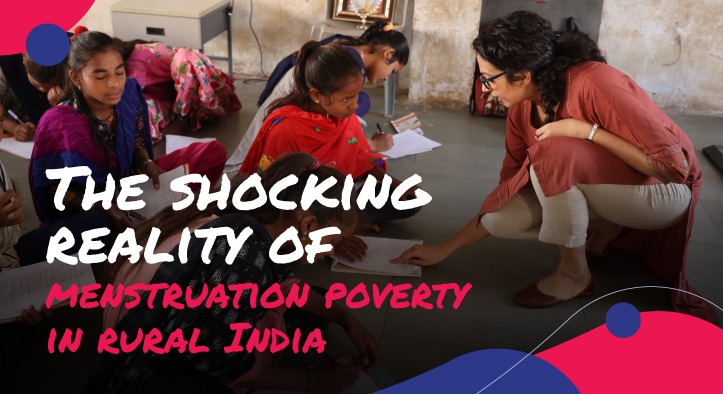
The Shocking Reality Of Menstruation Poverty In Rural India
Periods don’t discriminate.
The rich and poor, young and older, healthy and the sick; every woman goes through
menstruation. The difference lies in each one's circumstances to manage them. Many
in urban India can access multiple resources, but the realities of rural India are
starkly different.
Unipads strives to work towards menstruation awareness and providing healthy menstruation
practices to girls and women in rural India. Our team rings the alarm on the importance of
leveraging education to improve menstrual hygiene for all girls through sustainable and
reusable sanitary napkins. We recognize that the connections between menstrual health,
gender equality, and education are powerful.
On a mission to educate 180 tribal girls aged 10-16 at a government school in rural Gujarat,
Unipads encountered a heart-wrenching and deeply perplexing hurdle. Ms. Geeta Solanki and our
Team of Unipads had traveled for hours in the early morning hours to offer a Free Menstrual
Hygiene Kit inclusive of
Unipads reusable sanitary pads,undergarments, and personal hygiene products for all the attendees.
Unfortunately, a painful reality confronted us.
We witnessed the seminar room standing empty apart from a meager gathering of 15 young girls in attendance and some of the school staff! This was a mere fraction of the enrolled 180 girls from secondary and higher secondary schools who attended school regularly. Where were the rest? After all, the seminar and the kit were in their interest.
The answer left us shocked! These girls often missed school to earn daily wages. These were young girls. Many of them used old, dirty rags for managing their periods, who couldn’t go out while menstruation, and who didn’t have a listening ear for their menstrual queries! They had made the poignant choice to miss a significant seminar and free menstrual health kit for daily wages of less than half the cost of the kit!
We were flooded with a plethora of feelings. Shock, despair, pain, and helplessness, all together. Even though the school boasted a high-quality setup, providing free education and holding the promise of a better life, these young girls decided to forego education to earn daily minimal wages.
The challenges hindering these young girls' access to education were not just significant, but immense. We arrived at the sobering realization that period poverty in rural India did not solely stem from economic limitations or menstrual taboos. It also sprouted from a deep-rooted, poor mindset surrounding menstrual health. An idea that menstrual hygiene is unimportant.
To bring about a paradigm shift, we continue to amplify our goals. Our impact aligns with Sustainable Developmental Goals. Via these, we aspire towards:-
- SDG 3: Promoting Menstrual Health - Access to proper menstrual hygiene practices for rural girls and women, improving health and well-being.
- SDG 8: Empowering Economic Opportunities - Providing sustainable menstrual products and education, empowering girls and women for decent work and economic growth.
- SDG 4: Enhancing Education Awareness - Raising awareness about menstrual health and providing education, supporting quality education for girls in rural areas.
- SDG 12: Encouraging Sustainable Consumption - Promoting sustainable menstrual products like reusable pads and encouraging responsible consumption practices.
- SDG 5: Advancing Gender Equality - Breaking the stigma surrounding menstruation, empowering girls and women to overcome barriers and achieve gender equality.
If you share our vision of improved menstrual health and sustainable solutions, Unipads looks forward to hearing from you.


